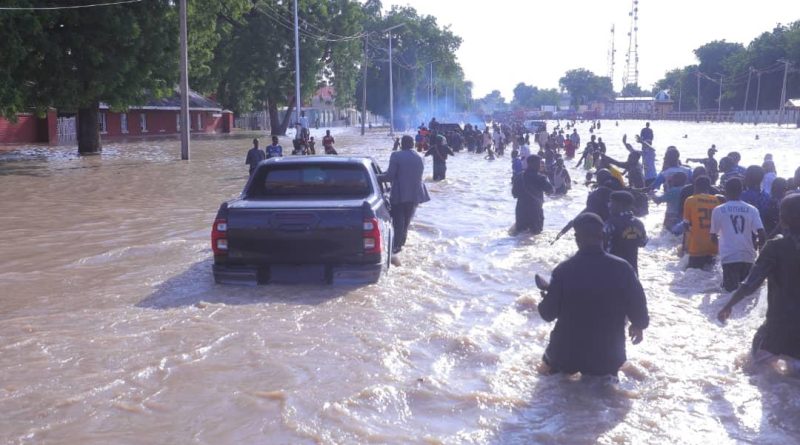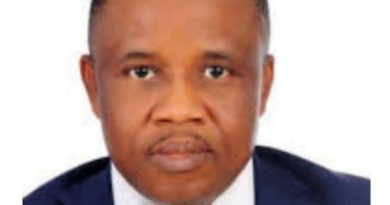Maiduguri Flood: Alau Dam Built And Maintained By FG Not Borno State Gov’t, Group Claims
By Bukar BOLORI
Borno Concerned Citizens have claimed that the faulty Alau Dam which overflowed and caused the flooding and submerging of over half of Maiduguri landmass and its environs is owned and maintained by the federal government.
The group in a press statement on Sunday by its publicity secretary, Alkassim Modu said the Borno State governor and government should not be blamed for the faulty infrastructure and the subsequent flooding and devastation of Maiduguri and environs.
The statement read: “The recent overflow of the Alau Dam on September 10, 2024, which led to the flooding and submerging of over 70% of Maiduguri and environs, and the displacement of over two million people has created misconceptions about the ownership of the facility and who is responsible for its maintenance.
“Alau Dam is located in Konduga Local Government Area of Borno State, fuelling widespread belief, that the Dam belongs to the Borno State Government. However, verifiable evidence shows that it was actually built by the Federal Government of Nigeria between 1984 and 1986 as a reservoir of the Ngadda River. It was built to impound water from Ngadda River, to provide water for domestic consumption in Maiduguri and environs and irrigation for communities around the river bank. Ngadda River is one of the tributaries of Lake Chad where the Ngadda River eventually flows.
“Our inquiries show that out of genuine concern for his people, Governor Umara Zulum, on the 5th of September, 2024 sent a state government delegation to visit and see the condition of the Dam, following the unprecedented increase in the volume of rainfall this year.
“Our inquiry revealed that Borno’s delegation was received by the Dam managers (Chad Basin Development Authority, CBDA) who briefed and gave assurances that the Dam has no “engineering deficit and therefore poses no threat.
“Equally concerned by the increasing volume of rain, Zulum ordered the activation of all government machinery on the 7th of September, to prepare for the eventuality of a flood. Zulum also issued a warning that the unprecedented increase in the volume of rainfall this year could lead to flooding in Maiduguri. This shows that the Borno State Government took cautionary measures and informed everyone of the possible dangers ahead.
“Zulum’s statement on the 7th of September, 2024 said that “The Governor noted with concern that the high volume of rain across parts of the state may possibly lead to flooding.
Zulum also consequently “instructed all relevant government agencies and local councils to dutifully discharge their responsibilities by continuously assessing vulnerable areas, implementing preventive measures, and conducting public awareness campaigns across all communities in their domains.”
The Governor also “cautioned the public to be conscious about the possible risks, be vigilant and abide by all directives from government agencies and constituted authorities on all emergency response protocols.
“According to our inquiries, on September 9th, the government drafted about 4 public address systems, from 11:00 pm to about 4:00 am on Tuesday, September 10th, calling on people from the prone areas to evacuate immediately. This has been confirmed by many locals who were interviewed.
“Zulum, within the power of the Borno State Government made necessary efforts to avert the disaster, but unfortunately, the high volume of water overwhelmed the Dam and all efforts to prevent Maiduguri from being flooded.
“The Lake Chad flows through the territories of Cameroon, Chad, Niger and Nigeria, and the Alau Dam facility is managed by the Federal Ministry of Water Resources, which receives annual budgetary provisions and not the Borno State Government.
“The Federal Ministry of Water Resources and the Chad Basin Development Authority are solely responsible for maintaining the Dam and are mandated to conduct regular assessments and maintenance.
“Nigeria’s Federal Ministry of Water Resources was established in 1976 and is saddled with the statutory responsibility of managing water supply, irrigation, freshwater, and aquaculture in the country. It also has the responsibility of overseeing the 11 river basin development authorities in Nigeria, including the CBDA.”




